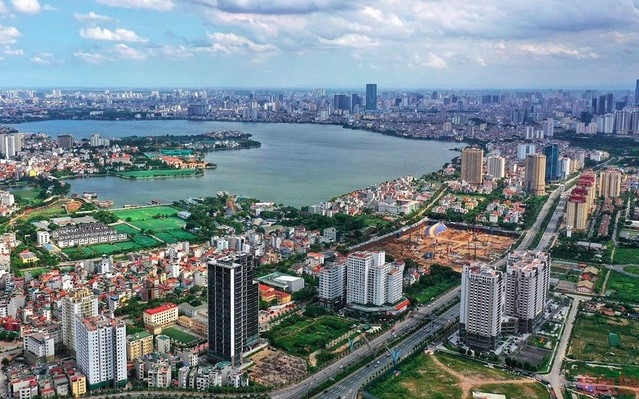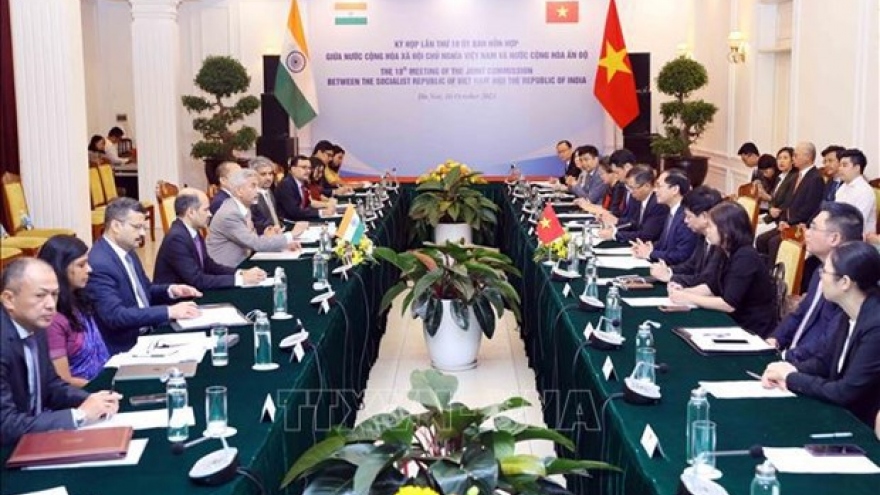Indian scholar impressed with Vietnam's development achievements
VOV.VN - Vietnam has made remarkable progress across a multitude of areas, not only in trade and investment attraction, but also in increasing per capita income, according to Prof. Reena Marwah of Delhi University, who is also the secretary general of the Association of ASIA Scholars (AAS).
The social progress made by the Vietnamese people is extremely commendable. In less than 40 years since implementing the renewal (Doi Moi) process, which began in 1986, the nation has achieved plenty of impressive results, he went on to outline.
In line with this, Vietnamese per capita income increasing from around US$200 to over US$4,000 by 2024 shows remarkable growth.
The country boasts a strong and resilient economy, which has never seen a major financial crisis. As such, Vietnam has emerged as a very important location for both major industries and multinational corporations.
That is why foreign direct investment (FDI) in Vietnam reached US$27.26 billion as of October 31, according to data from the General Statistics Office (GSO) of Vietnam, and the country is consistently among the economies with the highest growth rate in the world.
Furthermore, the country has recently been assessed by the International Monetary Fund (IMF), the World Bank (WB), and the Lowy Institute as one of the countries with an outstanding economy, overcoming many shocks, and demonstrating excellent resilience after the COVID-19 pandemic.
Professor Marwah cited several reasons why the nation has maintained its high growth rate, namely that the country has signed a series of free trade agreements with many other states, established comprehensive strategic partnerships with numerous countries, and the process of economic transformation is also very prominent.
The country has also participated in the Regional Comprehensive Economic Partnership (RCEP). Currently, it has eight unicorns comprising of enterprises with a valuation of over US$1 billion.
The Vietnamese economy has performed very well this year and is expected to continue to grow strongly next year.
In addition to a stable economic development foundation, Prof. Marwah predicts that Vietnam will face its own challenges ahead in 2025. The first is the large trade deficit with the US coupled with the possibility of the Trump administration increasing import and export taxes.
The second is the removal of the European Commission’s “yellow card” placed against illegal, unreported and unregulated (IUU) fishing.
The third challenge is energy security, particularly as the nation has been an energy exporter, but will now become an energy importer due to the expansion of infrastructure and industries.
Fourth is to improve the overall skills of the workforce. Vietnam needs to develop its own industries more and therefore needs more skilled workers, especially in the context of the country's advantage in cheap labor.
Finally, according to Prof. Marwah, the nation needs to improve the overall quality of agricultural products because it is still heavily dependent on exporting this item, while focusing on sustainable agricultural development.
Regarding foreign affairs, the Indian professor emphasised that the country has established friendly relations and comprehensive strategic partnerships not only with Russia, the US, China, and India, but also with many other countries.
In recent years, the nation has continuously welcomed many top world leaders such as Russian President Vladimir Putin, US President Joe Biden, and Chinese President Xi Jinping. This once again shows that the country’s role is increasingly focused on and enhanced in the international arena.


